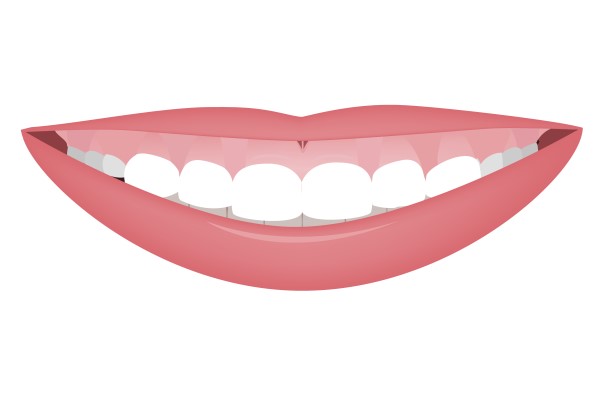Is a Gummy Smile Unhealthy?

For many patients, a gummy smile is not a cause for concern. Though it may pose a cosmetic issue for more self-conscious individuals, gummy smiles usually do not bring complications. However, individuals whose smiles show too much gum should consult with a dentist to make sure that there are no major health concerns.
Possible causes of a gummy smile
In most cases, excessive gum tissue is purely hereditary. A combination of small teeth, a large jaw, and/or a short upper lip can contribute the gummy look of a smile. In rare cases, a large gumline can be the result of a condition known as hereditary gingival fibromatosis, which is a slow but progressive enlargement of the gum tissue. If left untreated, this condition can lead to speaking problems.
Hormones may also play a role in a progressively gummy smile. Hormonal imbalances caused by puberty or pregnancy can cause a increased blood flow to the gum tissue and change the way it maintains itself. If genetics and hormones are not the cause of a gummy smile; however, there are a few other causes a dentist may consider.
Altered tooth eruption
Though it sounds dramatic, tooth eruption is the natural process of new teeth pushing through the gumlines. For most people, the eruption of permanent molars occurs around age six, while the final molars — or “wisdom teeth” — erupt between the ages of 17 and 25. When something interferes with the growth of a tooth, dentists refer to the situation as “altered passive eruption.”
When APE occurs, only part of the tooth pushes through the gumline. This can cause the tooth to appear shorter than it actually is, thereby resulting in a gummy look. Though APE typically does not pose any health risks, it can hurt the appearance of one’s smile.
Poor dental hygiene
If a person’s gums suddenly appear larger than normal and the gums are red and swollen, the issue may be a lack of oral hygiene. When a person neglects dental hygiene, plaque can build up on the teeth. Eventually, the plaque can work its way down into the gumline, causing the gums to become inflamed and swollen. This occurrence is known as gum disease or gingivitis.
If left untreated, gingivitis can progress into periodontitis and, eventually, advanced periodontitis. Gum disease at any stage is dangerous, but periodontitis is especially so. In the advanced stages of the disease, the gums may begin to recede from the teeth and expose tooth roots. As the infection progresses, pockets may form in the gum tissue and fill with pus. It may also eat at the bone and result in tooth loss, among other complications.
Medication side effects
All prescription drugs come with a list of side effects. On many of those lists is “enlarged gums.” Types of prescription medications that often cause gummy smiles include those used to treat epilepsy, immunosuppressants, and medications used to treat heart disease.
Conclusion
In most cases, a gummy smile is not a cause for concern. However, it could be, which is why individuals should consult with a dentist right away if their smiles appear gummier than usual. If it is purely aesthetics that bother a person, a cosmetic dentist can provide appropriate treatment.
Request an appointment here: https://www.ohiocosmeticdentists.com or call Ohio Cosmetic Dentists at (614) 503-5240 for an appointment in our Columbus office.
Check out what others are saying about our dental services on Yelp: What Is Gum Contouring in Columbus, OH.
Recent Posts
If you have a gummy smile, you may be interested in learning about gum contouring. Contouring reshapes the appearance of your gums to give your smile a more uniform appearance that looks naturally healthy and youthful instead of like you’ve been eating too much candy! Here’s some important information about contouring, including how it works…
Seeing a dental professional for gum contouring is one common solution for improving the appearance of the mouth by removing excess gums or adding tissue. There are several different medical and aesthetic reasons why a person may pursue this route, and some people may combine this procedure with other types of treatments to address issues…
For people with uneven gums that are either too high or too low on the teeth, gum contouring is a procedure that can be used to reshape a patient’s gumline. In general, the operation is quick to accomplish and does not require an extensive recovery period. While this surgery can help prevent oral health problems…
Receding gums expose the teeth roots, making them vulnerable to heat, cold, pressure, corrosion, and harmful mouth bacteria. The exposure also makes your teeth appear longer than they should be, which can affect the look of your smile.A dentist might recommend gum grafting to correct gum recession. Here is how to know if a gum…


